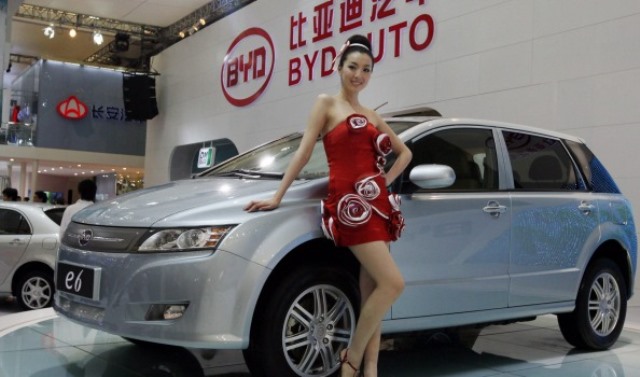The European Union will introduce tariffs of up to 37.6 percent on imports of electric vehicles (EVs) from China starting this Friday, Reuters news report said.
Tariffs on imports of EVs from China will be provisional for a four-month period.
European Commission’s provisional duties, ranging from 17.4 percent to 37.6 percent, aim to counteract what President Ursula von der Leyen describes as a surge of subsidized Chinese EVs flooding the market. These rates, detailed in a 208-page document released on Thursday, closely align with the figures announced on June 12, after adjustments for minor calculation errors identified by companies.
It is expected that China will take necessary measures to protect its interests, potentially including retaliatory tariffs on European exports such as cognac and pork. EU trade chief Valdis Dombrovskis, however, stated that there is no justification for Chinese retaliation, emphasizing the EU’s goal of ensuring fair competition.
EU’s anti-subsidy investigation, which began last October, will continue for nearly four more months. At the conclusion of this period, the Commission may propose definitive duties, typically lasting five years, subject to approval by EU member states.
While ongoing talks with China could lead to a resolution that avoids the imposition of final tariffs, Dombrovskis stressed that any solution must address the current market distortions and comply with market standards.
Chinese automakers like BYD, Geely, and SAIC face significant tariffs, with rates set at 17.4 percent, 19.9 percent, and 37.6 percent, respectively, on top of the EU’s standard 10 percent duty on car imports.
Western carmakers such as Tesla and BMW, which cooperated with the investigation, will face 20.8 percent tariffs, while non-cooperating firms will be subject to the highest rate of 37.6 percent.
The tariffs pose a dilemma for Chinese EV manufacturers, who must decide whether to absorb the costs or increase prices for European consumers. This could hinder the EU’s objective of achieving carbon neutrality by 2050, as increased EV prices might deter consumers.
Some Chinese brands, including MG and Nio, have already indicated potential price hikes in Europe later this year. Tesla also announced plans to increase prices for its Model 3. The looming tariffs might drive Chinese automakers to invest in European manufacturing facilities despite higher labor and production costs.
Xpeng, another Chinese EV maker, is the latest to consider setting up operations in Europe to circumvent the tariffs. Meanwhile, Volkswagen, Europe’s largest carmaker, criticized the tariff decision, warning of its negative impact on the European and German automotive industries.
Auto industry leaders are concerned about potential counter-measures from China, which could further challenge the competitiveness of European cars in the Chinese market. Last year, German carmakers derived a third of their sales from China.
The Commission estimates that Chinese brands’ share of the EU market has surged from below 1 percent in 2019 to 8 percent and could reach 15 percent by 2025, with their prices typically 20 percent lower than EU-made models.
The upcoming advisory vote by EU members will be a crucial test of support for the Commission’s case, which has faced wavering support despite being initiated without an industry complaint.
The Chinese Passenger Car Association has suggested that the tariffs will have a modest impact on most Chinese firms, as the rates are significantly lower than the 100 percent tariff the United States plans to impose on Chinese EV imports from August.

